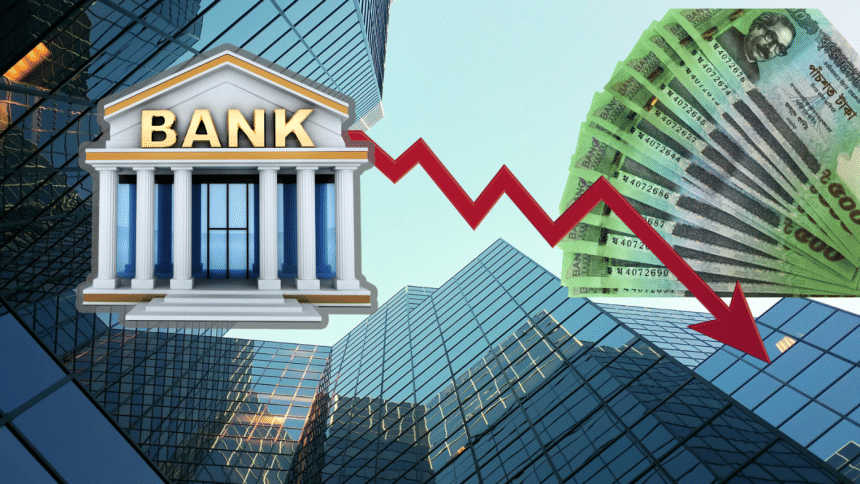Why is credit demand so low?

Credit demand in the private sector of Bangladesh has virtually ground to a halt, hitting its lowest level since at least 2004, indicating a distressed business and investment situation.
Private sector credit growth stood at 6.82 percent in February this year, as per Bangladesh Bank data, down from 7.15 percent the month prior.
Even at the height of the Covid-19 pandemic in 2021, private sector credit growth had hovered between 8 percent and 7.5 percent, noticeably higher compared to current trends.
This raises the question: Why is the demand for credit in the private sector so low?
To answer this question, The Daily Star spoke to bankers, central bank officials, economic experts, and businesspeople.
They highlighted several reasons, including uncertainty in the investment climate due to the recent political changeover, high interest rates owing to the tight monetary policy, banks' go-slow strategy, lacklustre loan recovery, worsening law-and-order situation, high bad loans, strict action against some large borrowers, and the shrinking lending capacity of banks.
For over two years, the central bank has continually hiked the policy rate — the rate at which commercial banks borrow from the central bank — to combat skyrocketing inflation, which has contributed to a rise in lending rates at banks.
The banking regulator kept the policy rate unchanged at 10 percent for the January–June period of the current fiscal year. As such, banks are currently imposing a maximum of 16 or 17 percent interest on lending, which stood at just 10 or 12 percent a year ago.
Similarly, hesitance in the investment scenario is reflected by the trend of letter of credit (LC) openings for capital machinery imports.
From July to February of FY25, LC openings for capital machinery imports fell by 30.10 percent year-on-year to $1.15 billion, central bank data showed.
On the other hand, after the political changeover on August 5, some large borrowers have defaulted and are now unable to secure fresh loans from banks.
Beximco Group, a few concerns of the Bashundhara Group, S Alam Group, and Thermax Group have defaulted on loans, and some other business conglomerates affiliated with the previous government are on the way to becoming defaulters, as per industry insiders.
Syed Mahbubur Rahman, managing director of Mutual Trust Bank, recently told The Daily Star that he had never seen such slow credit growth during his over three-decade career.
The senior banker attributed the slowdown to heightened lending rates and a worsening law-and-order situation following the recent political changeover.
"Panic has gripped investors in recent months due to the weak law-and-order situation," he said, adding that some garment companies have shut down recently.
Rahman, also a former chairman of the Association of Bankers, Bangladesh, said that around 10 banks have seen their lending capacity erode due to massive irregularities and scams, further impacting private sector credit growth.

 For all latest news, follow The Daily Star's Google News channel.
For all latest news, follow The Daily Star's Google News channel. 



Comments